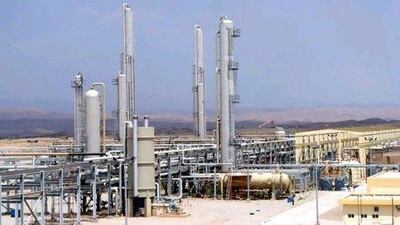SHARJAH // Dana Gas is considering a plan to list its shares in London to try to raise its international profile and reduce its reliance on lacklustre local markets.
It comes less than three weeks after Oman's Renaissance Services pulled plans to list its Dubai oilfield services unit Topaz Energy and Marine in London. Kuwait Energy has also deferred a share sale in London.
The Dana board has been considering a London listing among other actions to help lift the Sharjah oil and gas producer's share price, which the company's chief executive says has been buffeted by political unrest in the Middle East and North Africa.
"Our share price is not representing the quality of assets this company has. But many others are in the same boat," said Ahmed al Arbeed. "Then there's the nature of our business. It is not understood by the investors in the region because the governments here control the oil and gas."
Publicly traded companies in the Emirates have been looking to a potential merger of the country's two major bourses to help to raise trading volumes that have fallen sharply. Consolidation of the country's markets could also help to attract foreign investors, which account for just 3 per cent of ownership.
Dana is one of only two publicly traded UAE oil and gas producers. The other is the government-controlled Abu Dhabi National Energy Company, or Taqa, which also has electricity assets. Both companies are listed on the Abu Dhabi Securities Exchange.
That does not give local investors many options if they wish to own a stake in the Gulf region's key industry.
"We're continuously thinking of how to improve the value of the company to shareholders. We think the value will eventually be realised because we have strong assets," Mr al Arbeed said.
He is especially confident after Dana weathered the Egyptian revolution with its gas production from that country intact at about 245 million cubic feet per day (cfd) plus associated liquids.
Egypt's new political situation seems "solid", with the caretaker military government intent on holding elections this year for a transfer to civilian power, Mr al Arbeed said.
"That's why the payments have been coming, although not at the level we planned for. We believe that in time they will improve, maybe in a couple of months."
While gas output from Egypt's Nile Delta continues to supply Dana's main revenue stream, the company has high hopes for its oil project in the south of the country.
"The configuration of the reservoirs is difficult. They are compartmentalised. But there is a really good opportunity to produce a lot," said Mr al Arbeed.
The geology of the company's oil discovery, about 150km from the southern Egyptian town of Aswan, is similar to a prolific Sudanese field that produces about 400,000 barrel per day of crude, he said.
In Iraqi Kurdistan, where Dana owns 40 per cent of a large gas development project, output has doubled from a year ago to 240 million cfd.
The project partners provide gas free to new power plants in the region, deriving revenue from local sales of associated liquids separated from the fuel-gas stream.
Since the recent completion of processing facilities, those include the natural gas liquids ethane, propane and butane, which have ready markets as petrochemical feedstock and containerised cooking gas. Previously, the partners were able to sell condensate - a type of light oil often produced with natural gas - only in Kurdistan.
Dana and its partners hope eventually to export some of the gas and liquids from their Kurdish project, but that will require resolution of an outstanding dispute between the regional government and Baghdad over oil and gas jurisdiction and revenues.
Closer to home, production of 50 million to 60 million cfd of gas from the Zora field, in Gulf waters shared by Sharjah and Ajman, is expected to start by the end of next year.
The project has suffered a series of delays because of a redesign of its production facilities. But now the studies are complete, and Dana is ready to tender contracts for the construction and operation of drilling and storage facilities.
Mr al Arbeed estimated the cost of the project, which will help to alleviate a local gas shortage linked to summer power cuts in Sharjah, at US$120 million (Dh440.7m) to $130m.
There is still no good news on Dana's long-delayed project to market Iranian gas in the UAE. The imports were expected to start five years ago through an undersea pipeline built by Crescent Petroleum, the private Sharjah oil and gas producer that is Dana's biggest shareholder.
Crescent is seeking an arbitration ruling on its protracted contractual dispute with the National Iranian Oil Company in an international court in the Netherlands.
"The ruling is expected by the end of this year," said Mr al Arbeed. "We are ready to receive the gas at any time."

